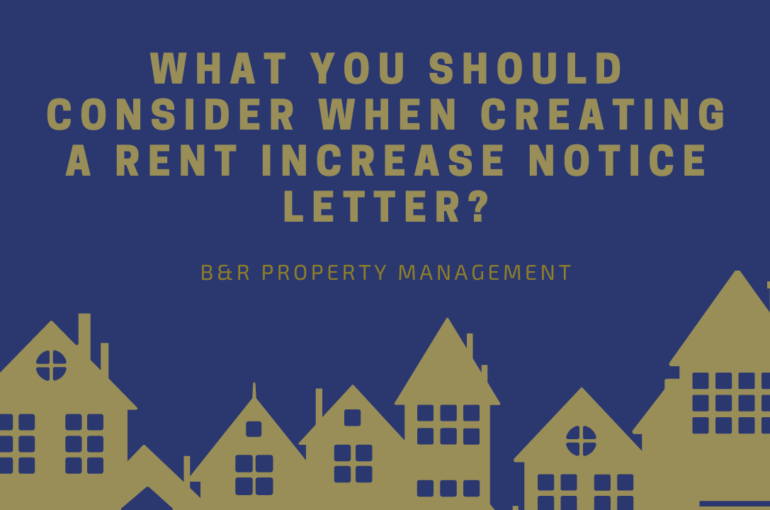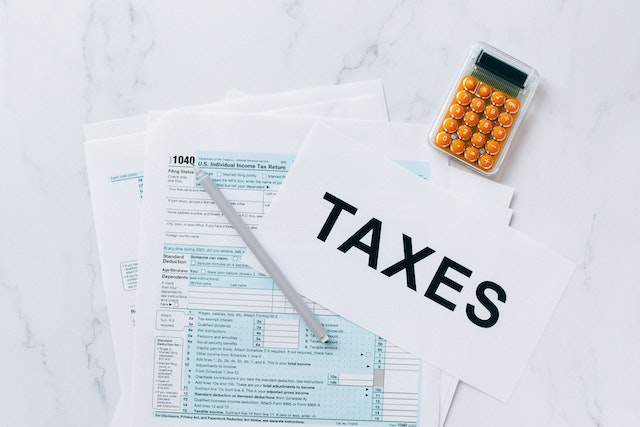What You Should Consider When Creating a Rent Increase Notice Letter?
What You Should Consider When Creating a Rent Increase Notice Letter?

Are you navigating the delicate dance of rent increases as a landlord? Crafting a rent increase notice letter can feel like walking a tightrope, balancing the need for fair returns with maintaining positive tenant relationships.
But fear not! In this article, we’ll delve into what you should consider when drafting that all-important notice letter. From understanding market trends to communicating effectively with tenants, we’ll explore the key factors that can make the process smoother and more successful for both you and your renters.
So, let’s dive in and ensure your rent increase notice letter is written eloquently, shall we?
Understanding the Rent Increase Letter
A rent increase letter is a formal written notification sent to tenants informing them of an upcoming increase in their rent. This letter typically outlines the details of the rent increase, including the new rental rate, the effective date of the increase, and any other pertinent information such as reasons for the increase or changes in terms of the lease agreement.
It serves as a transparent communication tool between landlords and tenants, ensuring clarity and understanding regarding changes in rental costs. A well-crafted rent increase letter can help maintain positive landlord-tenant relationships by providing tenants with ample notice and explanations for the increase.
Justifying Rent Increases: Key Factors
When considering a rent increase, it’s crucial to provide your tenants with clear and valid justifications to ensure they understand and accept the adjustment.

Here are some factors that can justify a rent increase, which you can confidently include in your rent increase letter:
Rising Inflation
Inflation impacts the overall economy, causing the cost of goods and services to increase over time.
As living expenses rise, landlords may find it necessary to adjust rental rates to keep pace with the increased cost of maintaining the apartment, covering operational expenses, and ensuring a reasonable return on investment.
Higher Utility Bills and Maintenance
Fluctuations in utility costs, such as electricity, water, gas, and waste disposal, can significantly impact a landlord’s expenses. Routine maintenance and unexpected repairs are ongoing responsibilities for apartment owners.
When utility bills or maintenance expenses increase, landlords may need to raise rents to cover these additional costs and maintain the property’s standards.
Improvements
Investing in property improvements, such as upgrading appliances, renovating common areas, or enhancing security features, enhances the overall quality of the rental apartment and improves the tenant experience.
These improvements not only increase the apartment’s appeal but also contribute to its long-term value.
Increased Property Taxes
Taxes are a significant expense for landlords and can fluctuate due to changes in local tax rates, property assessments, or government regulations. When apartment taxes rise, landlords may find themselves facing higher operating costs without a corresponding increase in rental income.

To offset these financial pressures and maintain profitability, landlords may need to adjust rental rates accordingly. By incorporating these reasons into your rent increase letter, you demonstrate transparency and fairness, fostering better understanding and cooperation from your tenants.
Essential Considerations for Crafting a Rent Increase Notice Letter
When crafting a rent increase notice letter, several key considerations can help ensure clarity, transparency, and positive communication with tenants. Here’s what you should keep in mind:
Provide Ample Notice
Giving tenants sufficient notice is essential to allow them time to adjust their budgets and make any necessary arrangements. Depending on local regulations and lease agreements, this notice period typically ranges from 30 to 90 days.
By providing clear and timely notice, landlords demonstrate respect for their tenants’ financial planning and minimize any potential disruptions caused by the rent increase.
Explain the Reasoning
Transparency is key when justifying a rent increase. Clearly outlining the reasons behind the decision helps tenants understand the necessity of the adjustment and reduces confusion or resentment.
Whether it’s rising expenses, inflationary pressures, apartment improvements, or increased taxes, providing a detailed explanation gives tenants insight into the factors influencing the change in rental rates.
Be Transparent
In addition to explaining the reasons for the rent increase, landlords should provide transparent information about the new rental rate and its effective date. Clearly state the amount of the increase, whether it’s a fixed dollar amount or a percentage, as well as the date when the new rent will take effect.

This transparency helps tenants plan accordingly and reduces uncertainty about future housing costs. It also demonstrates respect for tenants’ financial planning and contributes to a positive landlord-tenant relationship based on trust and communication.
Highlight Tenant Benefits
Alongside explaining the reasons for the rent increase, it’s crucial to emphasize the benefits that tenants will receive as a result. This might include recent apartment improvements, such as upgraded amenities, enhanced security features, or renovations that improve the overall quality of living.
By showcasing these improvements, landlords can help tenants understand that the rent increase is not solely about raising costs but also about providing better value and a more comfortable living environment.
Offer Options for Discussion
Encouraging open communication and dialogue is essential in maintaining a positive landlord-tenant relationship. In the rent increase notice letter, landlords should invite tenants to reach out if they have any questions, concerns, or need further clarification about the rent adjustment.
Providing contact information or scheduling office hours for discussions demonstrates accessibility and a willingness to address tenant inquiries, fostering trust and goodwill between both parties.
Remain Professional and Courteous
Throughout the rent increase notice letter, it’s essential to maintain a professional and courteous tone. Acknowledge the inconvenience that a rent increase may cause for tenants while expressing appreciation for their understanding and cooperation.

By conveying empathy and respect, landlords can mitigate any potential negative reactions from tenants and preserve a positive relationship built on mutual respect and trust. This approach also sets a constructive tone for any follow-up discussions or negotiations that may arise from the rent increase.
Bottom Line
As landlords, ensuring a smooth rent increase process involves several key considerations. Providing ample notice, explaining the reasoning behind the increase, and maintaining transparency are paramount.
Highlighting tenant benefits, offering open communication channels for discussion, and maintaining a professional and courteous demeanor further contribute to positive landlord-tenant relationships.
B&R Property Management is committed to facilitating this process by offering guidance, facilitating discussions, and ensuring transparent communication to navigate rent increases seamlessly. With our expertise and support, landlords can implement rent adjustments with clarity, fairness, and tenant satisfaction at the forefront. Contact us today to get started!



